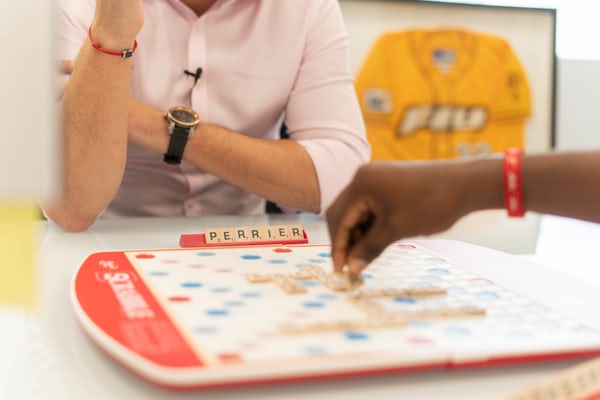Gamification has been a buzzword for some time now, but what exactly does it mean? At its most basic level, it’s the idea that anything can be fun if you add game-like characteristics to it. Gamification is also about engaging employees, retaining customers, and increasing sales. This blog will look at how you can use gamification to increase sales and performance in your company.
How Gamification Can Help Your Company

It’s no secret that gamification is a hot new business trend, with businesses finding all kinds of ways to use the game-like elements to increase sales. From offering rewards for reaching sales goals to using gaming elements in online contests and promotions, gamification is one business strategy that can make all the difference in your company’s growth.
Gamification is a strategy that uses the same psychological principles that work in video games to influence user behavior to help your business. Some experts say that gamification tactics are being used by businesses more than ever before, and it’s no wonder why: it’s a cost-effective way to motivate employees and customers to meet their goals and increase sales.
It improves the productivity of an employee and makes it easier to learn new skills. With the right implementation and planning, the outcome can be very satisfying. Gamification can also be used to motivate and reward employees. The most important thing is to set specific goals that can be measured by a set of metrics.
By creating a game with various levels, you can give the employee a sense of progression, which is a very important thing to have in any form of learning. Achieving goals will make the employee happier, more motivated, and overall a better worker.
The Best Gamification Tips & Techniques
Don’t Overdo The Rewards

there is a fine line between creating a positive atmosphere and creating a highly valued reward. Rewards should be valuable, but they shouldn’t be so overly valuable that they become unattainable. By rewarding players too high, you run the risk of having those rewards lose their value.
An example of this would be giving away cars in a loyalty program. While the car is a fun reward, it’s so valuable that it would be nearly impossible for users to attain it.
Create a Clear Goal

Think about what your goals are. Is it to increase engagement or retention, or to increase sales? The goals you pick should also be relevant to everyone, not just yourself. You should also think about how you will track your goals. Choose a metric that is measurable and actionable.
Recognize Success

Players love being recognized for their accomplishments. If you have a website, especially one with a game or questions, then you’ll want to consider adding a recognition program to your site. Recognition is an important motivator to players, so they’ll continue to play on your site. It’s also great for you because it builds a sense of community and makes your players feel good about participating in your site.
Create An Even Playing Field

You need to make sure you make the games fair for everyone. Do you have a team of virtual workers? If so, it’s vital for you to create an even playing field for them. This will not only increase the quality of your game but also give your employees a better way to compete! To start, you need to develop a scoring system. Decide on what will be the standard unit used to measure success and then find ways of showing yourself off to the public.
Reflect & Build

After a game is completed, have your team reflect on what went well and what could’ve been done better. You can use this information to make it better for the next time. We all know beating your previous high score is immensely satisfying and motivating. Achieving a goal and surpassing your previous score can be an extremely rewarding experience.
Use Metrics to Track Your’s Team Progress

When implementing gamification, it’s important to be able to track your team’s progress. An example of a metric when it comes to gamification is points. This is a great way to track a team’s progress, helping you to see the positive effects of your gamification strategy. Another metric is badges.
You’ll be able to see the badges that the team has achieved. A third metric to consider is leaderboards. Leaderboards will show you the progress of your entire team over time and against other teams.
Celebrate Everyone

Gamification has a lot of negative stereotypes associated with it, but that’s because the people who implement it in a poor way are the ones that get the most attention. If you’re careful to use it as an excellent way to celebrate others and encourage them, then everyone wins! Everyone can celebrate everyone by taking the steps to improve their lives and implement great gaming practices with their friendships
How To Measure the Efficiency of Gamification

There are a number of metrics that can be used to gauge the effectiveness of your gamification strategies, such as the percentage of players that increase their number of actions. As always, make sure to tweak your gamification strategies as you go along to see what works best for different types of players.
Time spent using an app can also help you gauge the effectiveness of your gamification strategies. If a player is using an app for many hours each day, your strategies are likely working! The amount of time spent on the app allows you to see how engaged your players are, as well as how much enjoyment they get out of the app.
Closing With Gamification
Gamification is the process of applying game concepts, such as points, badges, and leaderboard rankings, to engage users and improve their experience with a product or service. If you’re looking to build loyalty in your customers, then you should consider using gamification to improve your sales and productivity.
Hopefully, this article helped you to learn more about this revolutionary way to gain loyalty.



